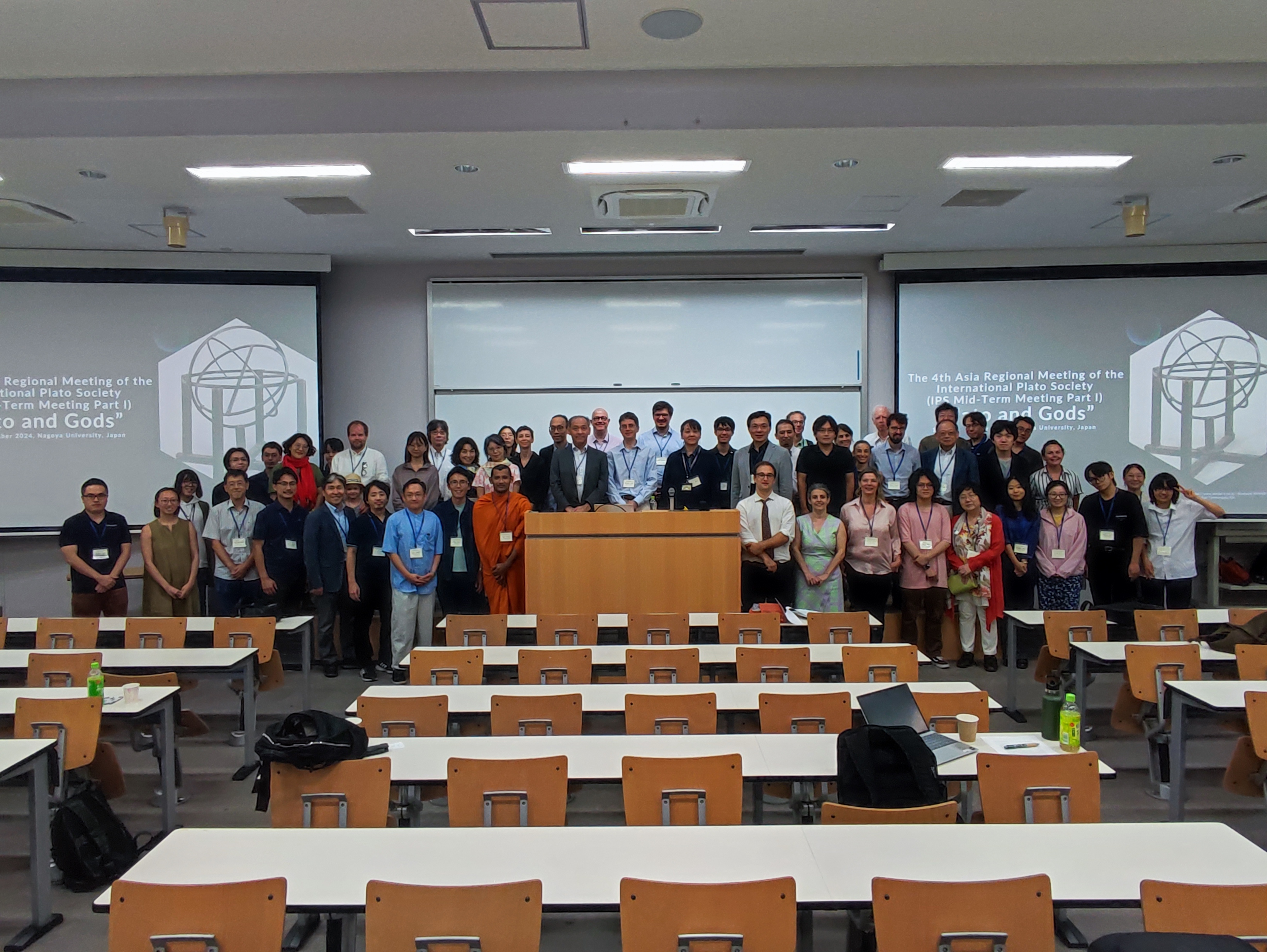Between the 11th and the 13th of September 2024, the 4th Asia Regional Meeting of the International Plato Society (IPS), “Plato and Gods”, was held at Nagoya University, Japan. Olof Pettersson was there and present a paper entitled “The Self as God in Plato’s Alcibiades I”. Read more about the event here.
The organizers describe the conferance in the following way.
According to a middle Platonist, Alcinous, the aim of life is to become as godlike as possible, a theme that Plato addresses in various ways. Indeed, in Republic X, it is said that those who live a life of justice become like god as far as possible for a human being. Famously, in the Theaetetus, Plato argues that to escape from earth is to become like god so far as possible, and this likeness is to be just and pious with wisdom. The concept of godlikeness appears to be intricately connected not just to Plato’s ethics, but also to his epistemological views. In Republic VI, philosophers are depicted as gazing upon and imitating the Forms, thus attaining a divine state. Similarly, in the Phaedrus, the philosopher’s soul is portrayed as following the divine circular motions, beholding the Forms. Do these descriptions represent various approaches to explaining the same philosophical concept, or do they signify different stages in the process of imitating the divine?
Furthermore, Plato’s acknowledgement of celestial gods, alongside more traditional gods, adds layers to his discussion of godlikeness. What roles do these celestial and traditional gods play in one’s pursuit of the ideal form of life? This prompts an inquiry into whether godlikeness is achievable solely through virtuous living, or whether it necessitates an intellectual understanding that transcends practical application. It also raises questions about the influence of Socratic piety on Plato’s ethical views, advocating a life of virtue and philosophical inquiry as the truest form of divine devotion. How does Plato reinterpret Socratic ideas about piety and virtue, and what implications does this have for his conception of a life akin to the divine?
These considerations lead us to the central theme of our upcoming conference: exploring Plato’s concept of godlikeness, as well as his views on gods and divinity, from a variety of perspectives.

